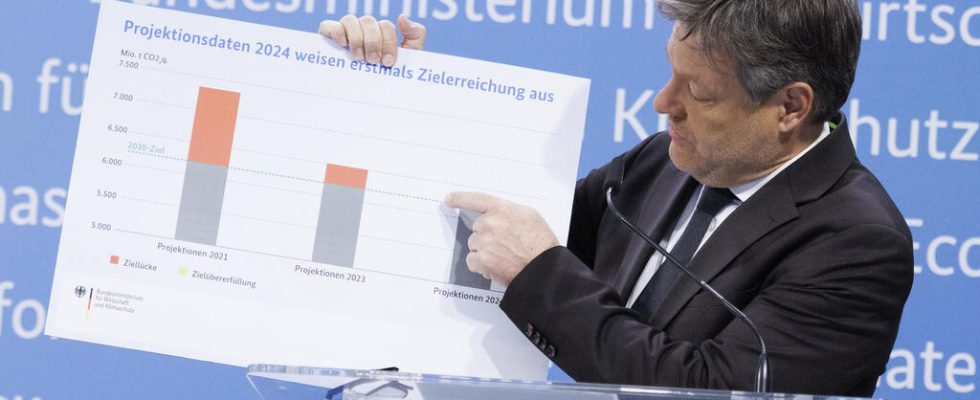Germany has always wanted to be a model in climate matters with ambitious greenhouse gas emissions reduction targets. But these ambitions meanwhile seemed unrealistic. A new report published Friday March 15 brings balm to the heart of the government.
2 mins
With our correspondent in Berlin, Pascal Thibaut
“ For some, our efforts are leading to the decline of the country. Today we show that this is not the case. » It was a very positive Robert Habeck who attended the presentation of the latest report from the federal environment agency. The Green Minister of the Economy and Climate has had to face a bad wind in recent months. Finally, he could be positive.
When he took office, the ambitious projections, a two-thirds reduction in CO2 emissions in 2030 compared to the base year (1990), seemed very compromised. A cut in half seemed at best possible. The end of Russian gas deliveries and the subsequent increased reliance on coal risked further compromising German ambitions.
Industry crisis
But 2023 was a good year for the climate, with the most significant decline since the reunification of emissions. Certainly, the crisis in German industry, which emits 20% of greenhouse gases, partly explains this decline. But not only. The measures taken by the government have led to significant development of renewable energy, which now provides more than half of electricity production. Coal use has declined significantly. Reducing emissions by two-thirds by 2030 is now realistic.
This is the first time that these expectations correspond to the government’s objectives. In comparison, in 2021 Berlin was counting on a decline of only 49% by 2030. The largest economy in the euro zone could even exceed the European Union’s objectives of reducing emissions by 55% by 2027. to 1990, three years before the set date.
Read alsoGerman federal state sued for failure to meet climate targets
